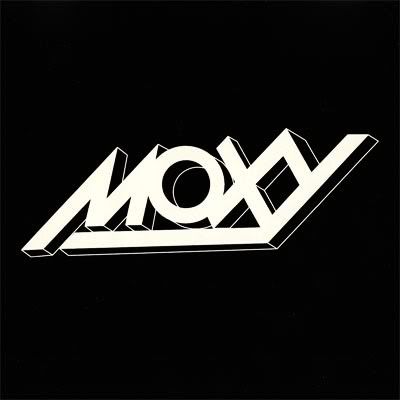Post by Erik Rupp on Nov 20, 2010 13:11:11 GMT -5

A lot of bands write good music, but never get an album deal. A lot of other bands write good music, get the album deal, but don't achieve much success and become largely forgotten a decade or two later.
Moxy fits the latter category.
They were a really good band with some very good albums but they didn't survive the 70's for the most part. They had some success in their native Canada, but even that was fleeting.
But thanks to CD resissues their albums have gotten a new lease on life. No, they won't be rocketing up the charts, but those CD reissues have helped Moxy's music survive into a new century.
Moxy's first album certainly doesn't start out with any indication of how good the band was. "Fantasy," sounds something like a combination of Pink Floyd and Montrose. It's a good song, but mellow in spots and laid back throughout (even in the, "Heavy," parts). It's almost as if the band and their producer decided to ease the listener into the album rather than hit the ground running.
And that was a philosophy that continued into the second song, "Sail On, Sail Away." This time it's a little livelier in the, "Heavy," parts, with a Montrose meets Led Zeppelin style. It's a great song with strong dynamics and melodies and utilizes acoustic guitars well in the beginning. It's a great bridge to...
"Can't You See I'm a Star," which is a good Montrose style rocker (think, "Rock Candy"). It's big and bold and really good. It's the first real statement on the album indicating what Moxy is really all about.
The hard edged Rock continues with, "Moon Rider," which again shows a strong Montrose influence along with a bit of early KISS thrown in for good measure. This one is a little more uptempo than, "Can't You See I'm a Star," and it features a nice mellow interlude in the middle that actually works well. It's another really, really good song. While it got some airplay regionally, this should have been a big FM Rock Radio staple across North America. Why it didn't hit bigger outside of Texas and a few other scattered stations across the U.S. and Canada remains a mystery.
"Time to Move On," is another solid rocker, with more good riffing and solid vocal melodies. It's actually not all that far removed from what Riot did on their first two studio albums. More good stuff. "Still I Wonder," starts off with a huge, "Working Man," type of riff before making way for big, open hanging chords to sing over. This one is much more influenced by the first Rush album than the first Montrose album, but influences from both can be heard. It's yet another really, really good song that must have sounded great (and amazingly fresh and new) in '75 and '76!
The next song, "Train," kind of lumbers around another big riff. This riff, however, is a slow and plodding juggernaut moving like Godzilla as he approaches downtown Tokyo. It's a little bluesier than some of the other songs on the album, and shows a little early Black Sabbath influence. It's good, but not quite as good as most of the other songs on the album.
The album closes with another slow-ish song in, "Out of the Darkness (Into the Fire)." Again there are big, beefy riffs and big vocal melodies, but this time there is an almost mellow feel to the heavy chorus, if that makes any sense. At the tempo that this song moves at a melodic chorus like this - even over fairly heavy riffing - feels a bit mellow. The song isn't really mellow, but it's got a great melodic sense that makes it a fitting way to end the album. It's another good song.
The audio production on the album is very, very good. The guitar tones are excellent and hold up well even today, and the drums and bass are well recorded and mixed as well. Mark Smith did a good job both with the technical aspects of the production (along with engineer Richard Dashut) and with the handling of the band's material and performances. This sounds like a big time album in 1975.
Fans of Montrose will very probably like Moxy. It's a very, very good straightforward Hard Rock album and should have found a wider audience than it did.
4.25/5

